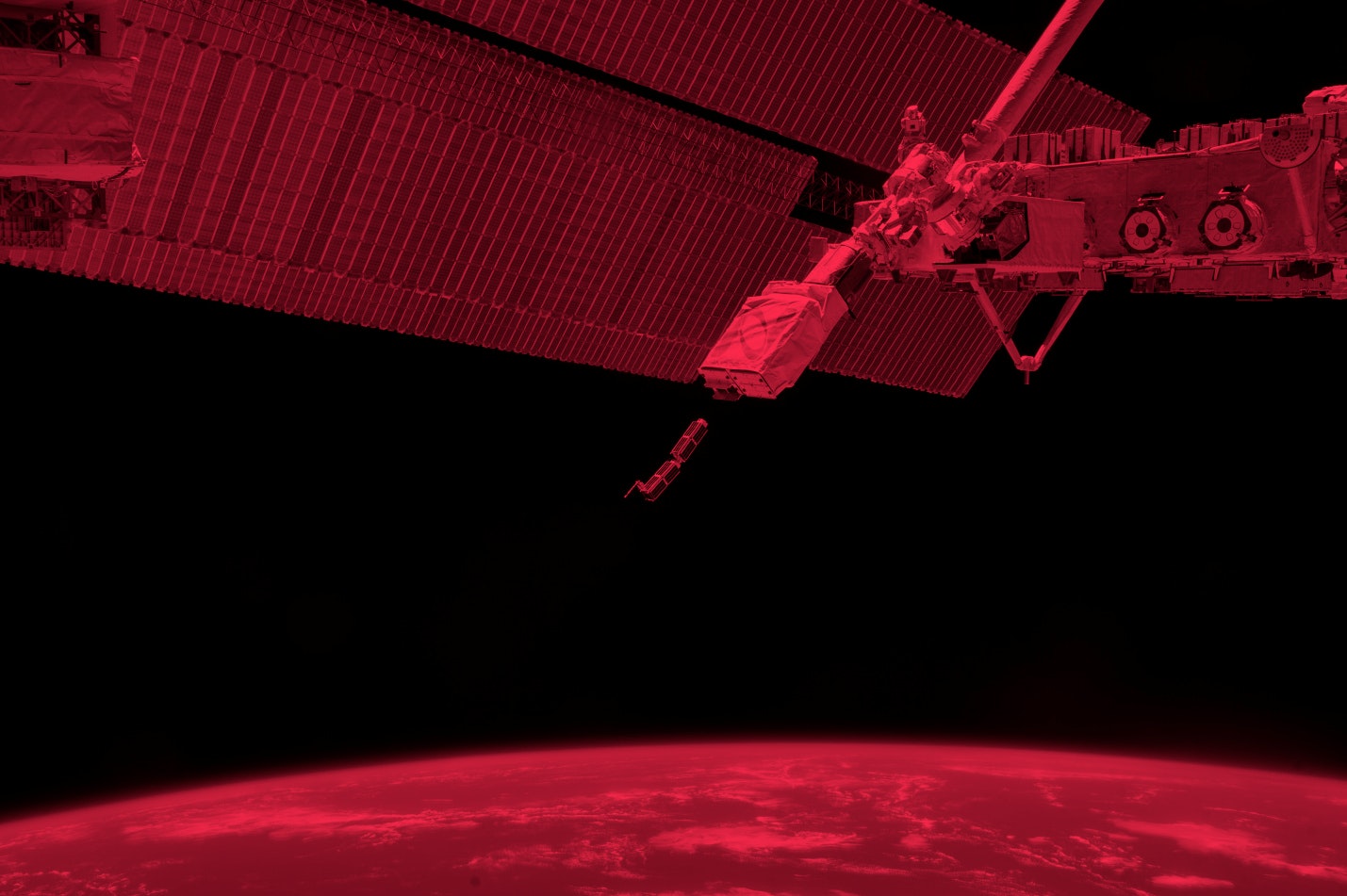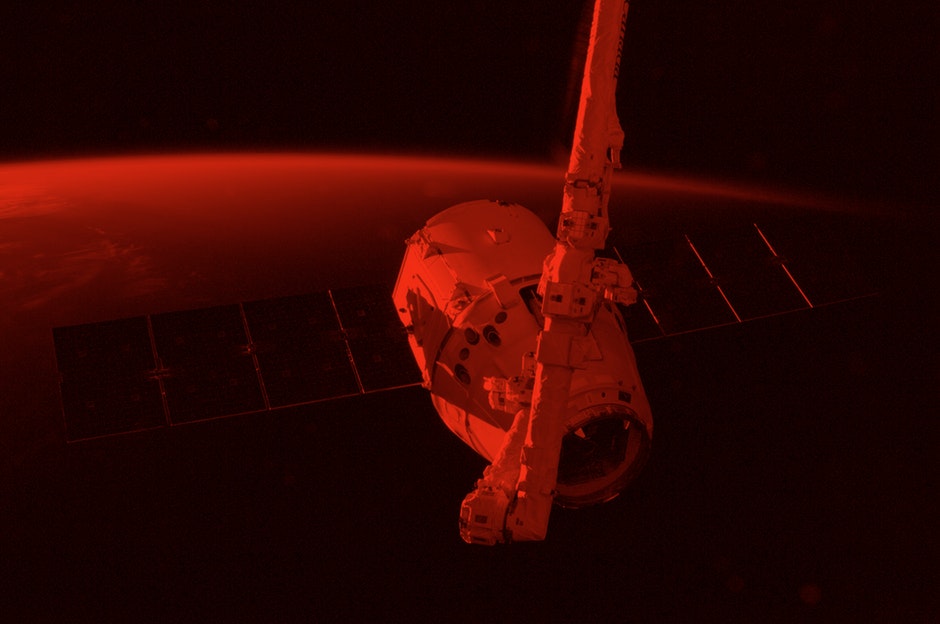President Trump has been saying since March that he plans to establish a “Space Force,” a nebulous, still-unexplained concept for a branch of the military that deals exclusively with space. Today, in a meeting of the National Space Council — a centralized, Senator-led space policy group re-introduced by Trump last year and headed by Vice President Pence — Trump said it… again.
“I am hereby directing the Department of Defense and Pentagon to immediately begin the process necessary to establish a Space Force as the sixth branch of the armed forces,” Trump said.
Did Trump clarify how much funding this Space Force would have? No. Did Trump clarify when or whether weapons will be sent into space? No. Did Trump describe the mission of the Space Force? No. Did the directive President Trump signed minutes later make any mention of the Space Force? No.
Do we have any idea what’s going on? Kind of.
Trump said on Monday that the Space Force would be "separate, but equal" from the Air Force, which already has the Air Force Space Command. This subcategory of the Air Force is in charge of launches positioning and weather data-gathering satellites for use by the military and Department of Defense. It's unclear what new or changed responsibilities a Space Force might have compared to the Air Force Space Command.
We do know that Trump doesn’t have unilateral power in enacting a Space Force. Similarly to the creation of the Air Force after World War II, a Space Force would need Congressional approval, and there’s far from a consensus about whether a Space Force is necessary. Florida Senator Bill Nelson also pointed out that there’s resistance within the Air Force about diverting resources from their agency to whatever the Space Force is.
The president told a US general to create a new Space Force as 6th branch of military today, which generals tell me they don’t want. Thankfully the president can’t do it without Congress because now is NOT the time to rip the Air Force apart. Too many important missions at stake. https://t.co/uYzqg1W8nE
— Senator Bill Nelson (@SenBillNelson) June 18, 2018
Here’s Trumps other problem: per the Outer Space Treaty, a treaty which dozens of nations signed in 1967, outer space is explicitly barred from any militant activity.
“The Moon and other celestial bodies shall be used exclusively for peaceful purposes,” the treaty reads. “Astronauts shall be regarded as the envoys of mankind.”
Granted, the treaty is a little vague, and there are ways that countries like the U.S. could get around it. For instance, the Treaty only explicitly bans nuclear weapons and weapons of mass destruction. But there are many types of weapons that could be used in space, and the U.S. is already actively pursuing some of them.
On May 23, the Senate Armed Services Committee voted to start developing space weapons. These weapons would be anti-satellite weapons (ASATs), meaning that they’d rotate around the Earth and shoot down an airborne missile from above. But in order for this to work, you’d have to have dozens and dozens of ASATs rotating the Earth. Deploying these weapons would be not only technically difficult, but massively expensive.
Thomas Roberts, a program coordinator and research assistant for the Aerospace Security Project at the Center for Strategic and International Studies, wrote for Defense360 that not only do ASATs explicitly weaponize space, but they’re also just not the best national defense tool.
“Space-based missile interceptors are a bad idea because of their inefficiency and vulnerability,” Roberts wrote. “Investments in missile defense would be better directed to other, more effective areas.”
Also, on May 22, news broke that the Pentagon plans on dedicating money to develop satellites that detect hypersonic missiles — a plan the U.S. has had for decades, but which hasn’t gained any real momentum until now. Missile-detection satellites aren’t actual weapons, but it’s possible that such technology could have a dual purpose. In other words, they could detect missiles and have weapon capabilities, like the ability to damage other satellites. Satellite repair robots already have the ability to damage other satellites. These situations are a legal grey area, and there’s nothing regulating or preventing dual purpose satellites from being launched.
Trump has also made it a priority to deregulate private activity in space in order to streamline the process for private companies entering space. In fact, the directive that Trump signed today (the one that made no mention of the Space Force) doubled down on making private deregulation as a national priority.
“The United States will maintain and expand its leadership in space by increasing its capabilities and developing standards and best practices,” the directive reads. “This process will… streamline processes and reduce regulatory burdens that inhibit commercial growth, enabling the U.S. commercial sector to lead the world in space.”
This matters because private companies can act as proxies for nationalistic soft power. Notably, last month the House of Representatives passed the Space Commerce Free Enterprise Bill, which states that the entirety of the Outer Space Treaty doesn’t necessarily apply to private companies.
Per the Outer Space Treaty, countries can’t own property on behalf of their own nation, and they’re liable for any activity by privately owned companies from their country. But the U.S.’s new bill aims to exempt private companies from complying with the Outer Space Treaty. In other words, the U.S. doesn’t want to be liable to the decisions and activities of wants to give private space companies like SpaceX, Blue Origin, or even Facebook. It’s a hard break from what every Outer Space Treaty explicitly laid out for signing countries.
It is very possible that Trump is just speaking words, as he does, and that the Space Force will never actually be created. After all, there’s not even a directive on paper mandating its creation. However, the militarization of space is already happening, and it can continue to happen with or without an official “Space Force” (whatever that means).








